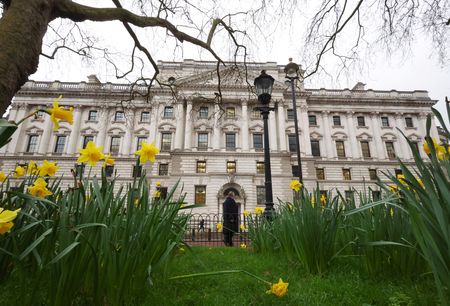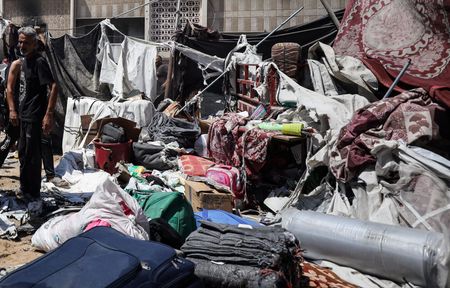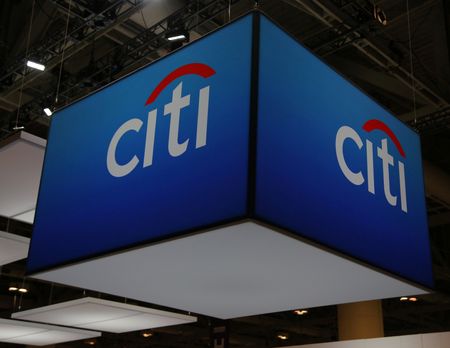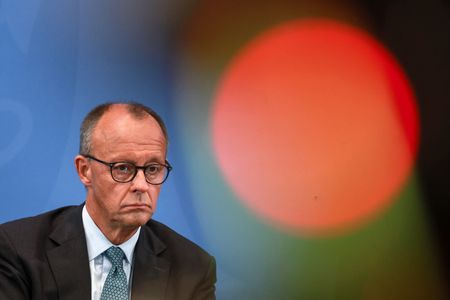By Iain Withers, Elizabeth Piper and Virginia Furness
LONDON (Reuters) -Britain will not back a high-profile initiative to form a multilateral defence bank, dealing a blow to a plan to create a global state-backed lender to help rearm countries.
For the first time since former NATO security advisers, senior British ex-military personnel and bankers publicly aired detailed plans for the Defence, Security and Resilience Bank, or DSRB, last year, Britain has ruled out participation.
“The DSRB proposals are not backed by the UK government, and the representatives of these concepts do not represent the government or any of its ministers. The UK has no plans to join this initiative,” Britain’s Treasury, or finance ministry, said in a statement to Reuters.
It precedes a meeting planned to take place in the City of London on Monday with 41 countries, including Germany, Japan and the United States, as well as Britain, invited to discuss how to fund the proposed bank, two sources familiar with the matter told Reuters. They declined to be named.
DSRB’s aim is to become a global state-backed defence bank with a triple-A credit rating capable of raising 100 billion pounds ($135 billion) to fund defence projects, particularly in countries that may not have access to cheaper finance.
It was conceived to be larger and more international than European initiatives, including the European Union’s 150-billion euro ($176 billion) SAFE loan scheme, and improved guarantees offered by the European Investment Bank.
The DSRB said in a statement that more than 35 countries from NATO nations, the EU and the Indo-Pacific region – including all G7 nations of which Britain is a member – had confirmed participation in the meeting on Monday.
“This strong turnout demonstrates the broad international interest in exploring new financial mechanisms to strengthen defence, security, and resilience,” the statement said.
“Governments are at an early stage in this process. As is always the case with proposed multilateral institutions, no nation has yet made a formal commitment,” it added.
UK officials are concerned the DSRB proposal will not meet the government’s goals of increasing value from defence spending and working with allies to increase efficiency, a government source said.
Government spokespeople for Germany, Japan and the United States did not respond to Reuters’ requests for comment.
Advised by a group of senior retired military personnel, including Stuart Peach, a former British chief of the defence staff and former chairman of the NATO military committee, some analysts had expected the DSRB to secure Britain as one of its main backers.
Defence industry sources cautioned that securing multilateral backing for the project could be difficult. The DSRB is jockeying for support in an increasingly crowded field for defence sector financing initiatives.
After Russia’s full-scale invasion of Ukraine in 2022 and responding to U.S. President Donald Trump’s demands for Europe to increase its defence spending, many NATO nations have substantially increased their military budgets and pledged to do more, even though their public finances are strained.
The two sources said the DSRB aimed to be larger and truly international to try to meet the scale of the funding needs, after NATO leaders in June pledged hundreds of billions of dollars of additional funding to core defence, such as troops and weapons and related areas like cybersecurity.
The DSRB said in August it had signed up several private sector banks to support its launch – Commerzbank, ING, JP Morgan, LBBW and RBC Capital Markets.
($1 = 0.8542 euros)
($1 = 0.7402 pounds)
(Reporting by Iain Withers, Elizabeth Piper and Virginia Furness; additional reporting Sarah Marsh in Berlin, Timothy Kelly in Toyko, Idrees Ali in Washington and Andrew Gray in Brussels; editing by Anousha Sakoui, Simon Jessop and Barbara Lewis)












